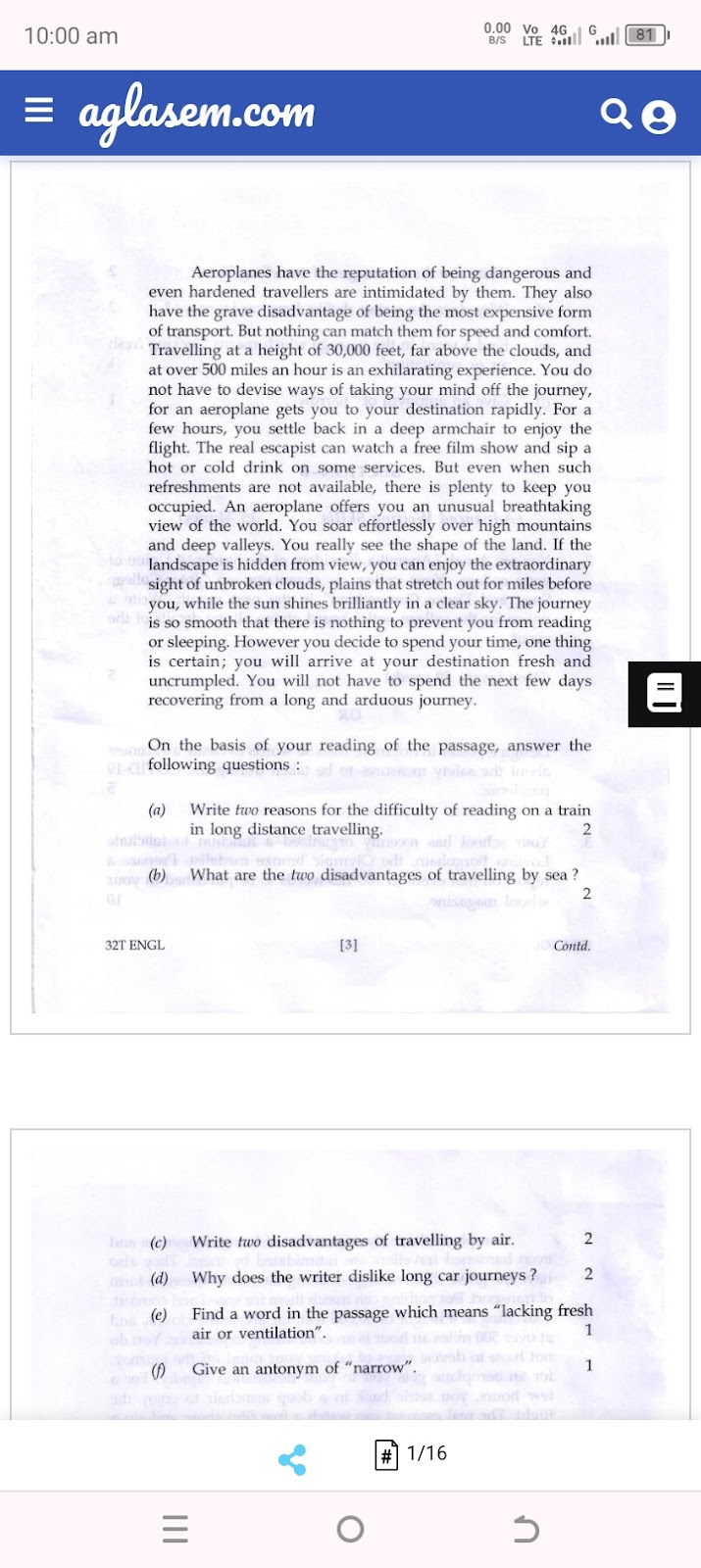82. HS2nd Yr /AEC 251- Unseen Passages or Comprehension (4)
1. Indians are known for their obsessive and compulsive fascination for gold. India is the largest importer and largest consumer of the yellow metal as Indians buy about 25 percent of the world's gold. In 2008, India imported around 400 tons of it. About 80 percent of the world's gold is fashioned as jewellery. However, most of us don't know or don't think about environmental cost of the metal. For instance, extracting enough gold to forge a solitary, no-frills wedding band ultimately translates into roughly 20-30 tons of waste. At some mines in Nevada (USA), 100 tons or more of earth have been excavated for a single ounce of gold.
1. What are Indians known for?
2. How much gold of the world India buy in 2008?
3. Is India the largest exporter of gold?
4. What percentage and how is world's maximum gold used?
5. Does gold has any impact in causing environment hazard? If so, how? Explain with example.
6. What is the present condition of Nevada due to gold extraction?
----------------------------------------------------------------
2. A sanctuary may be defined as a place where Man is passive and rest of Nature active. Till quite recently Nature had her own sanctuaries, where man either did not go at all or only as a tool-using animal in comparatively small numbers. But now, in this machinery age, there is no place left where man cannot go with overwhelming forces at his command. He can strangle to death all the nobler wild life in the world today. Tomorrow he certainly will have done so, unless he exercises due foresight and self-control in the meantime.
1. The author implies that his first definition of a sanctuary is:
a) Totally wrong
b) Somewhat idealistic ✅
c) Unhelpful
d) Indefensible
e) Immutable
2. It can be inferred that the passage is
a) Part of an article in a scientific Journal ✅
b) Extracted from the minutes of a nature.
c) Part of a speech delivered to an educated audience
d) A speech delivered in a court of law
3. What should be the most appropriate central idea of this passage?
a) Author argues that man kills big animals but saves mosquitoes and other parasites.
b) Man is selfish by nature so he is up against the wildlife which is harmful for his survival ✅
c) In view of the author man should not intervene in natural environment
------------------------------------------------------------
3. Dolphins are regarded as the friendliest creatures in the sea and stories of them helping drowning sailors have been common since Roman times. The more we learn about dolphins, the more we realize that their society is more complex than people previously imagined. They look after other dolphins when they are ill, care for pregnant mothers and protect the weakest in the community, as we do. Some researchers have suggested that dolphins have a language but it is much more probable that they communicate with each other without needing words. Could any of these mammals be more intelligent than man? Certainly the most common argument in favour of man's superiority over them that we can kill us is the least satisfactory. On the contrary, the more we discover about these remarkable creatures, the less we appear superior when we destroy them.
1. What is known about the dolphins?
2. What does the writer think about that we can kill dolphins more easily than they can kill us?
3. Do dolphins have some social traits similar to those of humans?
-------------------------------------------------------

